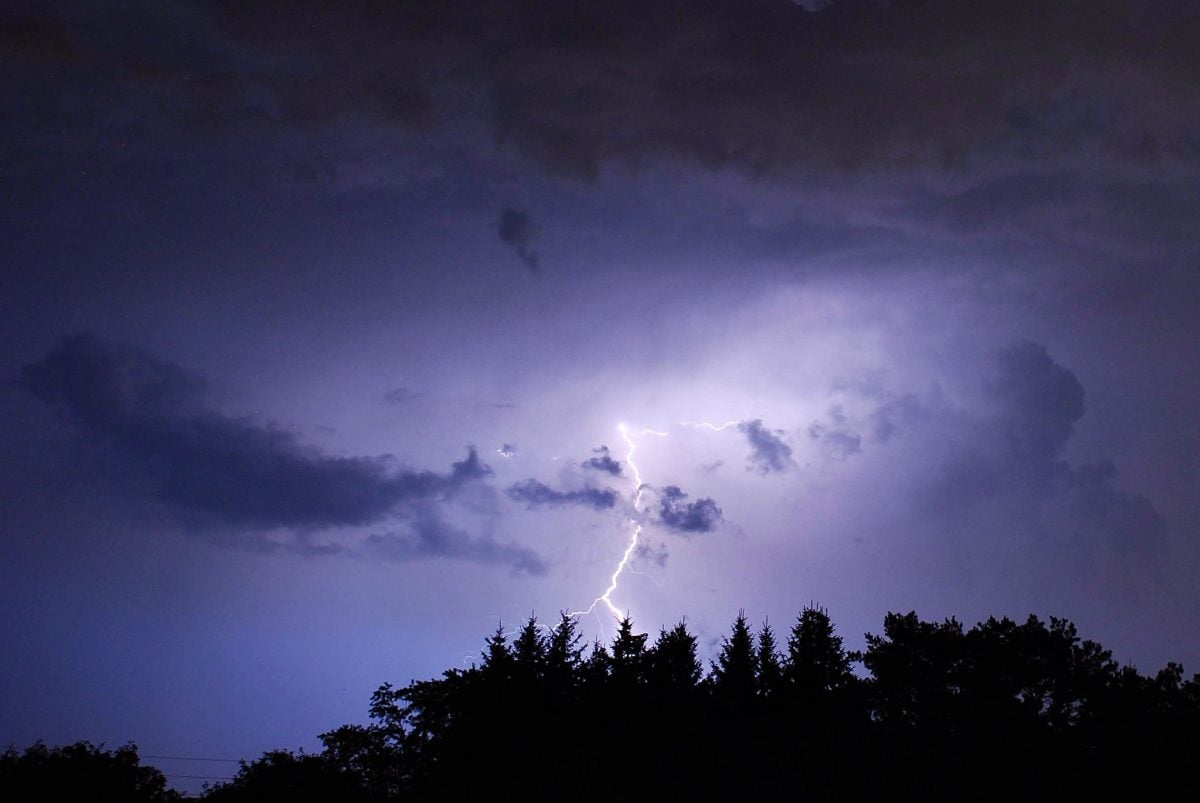Are you worried about your high-tech electronics at home during thunderstorms? A surge protector power bar can keep your electronics safe in the event of a voltage spike. But what about the EV charging in your garage? Do you need a surge protector, or should you unplug it from the grid during a storm?
We asked several manufacturers of home EV charging stations on best practices during thunderstorms, and what to avoid.
While Charging at Home
A “power surge” is an event when the voltage briefly spikes to higher than expected values. Power surges can enter your home from the grid during severe weather, and can damage sensitive electronics. Every home EV charging device from reputable manufacturers has several safeguards built-in to keep you and your home safe. Surge protection is one of such safety features, and it’s is also commonly described as “overvoltage” protection in the spec sheets. Should your home experience a power surge event during a storm, the EV charging station will handle it without sending the spike to your electric car.
Here is what a representative from Emporia Energy had to say:
If you’re charging the vehicle in a garage then you shouldn’t have any issues, but if the charger is installed outside and you’re charging outside we do recommend not charging until the heavy thunderstorm is over to prevent any issues/damage to your vehicle, charger or grid. Normally, the charger will be fine out in the elements as long as the charging cap is over the gun to protect the inside where the electrical ports are that plug into the vehicle.
Similar advice was echoed by a representative from Wallbox, with added emphasis to stop usage in the event of flooding.
Our Pulsar Plus comes equipped with surge protectors that would protect them in the event of a storm.
…Also, according to our installation guide, in case of flooding, ” do not operate your charger while it or your vehicle is submerged in water.”
While charging at Public Charging Station
Should you worry about charging your EV at Level 3 DC fast chargers in stormy weather? No, you are even less likely to encounter problems because commercial-grade charging hardware has even higher standards of safety.
In addition, both CCS and NACS (Tesla) connectors are weather resistant and can be used in both rain and snow. According to Tesla’s technical documentation for the NACS charging standard, both the connector and inlets are rated at IP67. In other words, you can use Superchargers reliably in any weather.
Considering buying a Tesla? Use our referral link to get $1,000 off, and help support our content.
